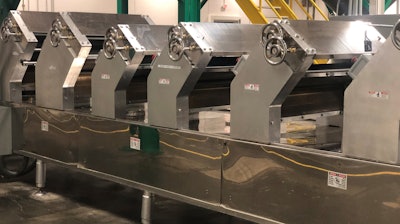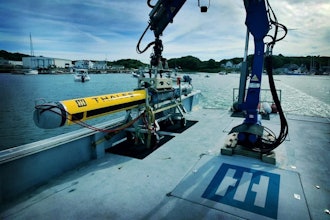
SALUDA, S.C. – Palmetto Gourmet Foods, a wholly owned subsidiary of Borealis Foods, producing high-protein, nutritious, low-cost ramen meals, on Tuesday announced a $100 million expansion over the next five years to construct new facilities and install a solar power infrastructure.
The expansion, which will help meet the growing global demand for the company’s products, includes:
- Building of additional factories – including a dedicated gluten-free ramen facility;
- Launching of new gluten-free meals and healthy high-protein snacks; and
- Construction of a solar power plant with the goal of powering Palmetto Gourmet Food’s facilities with 100% renewable energy.
“We are pleased to announce the next phase in growing our successful food technology company, which will expand our ability to meet a critical need for many people in the U.S. and around the world: access to nutritious, high-protein meals at an affordable price,” said Palmetto co-founder and CEO Reza Soltanzadeh. “And we are pleased to fulfill this mission while at the same time creating facilities that are highly sustainable.”
Palmetto Gourmet Foods, headquartered in Saluda, has grown from startup in 2019 to approximately 300 employees today in its 220,000-square-foot plant. It expects to hire another 700 by 2028. The expansion is expected to allow Palmetto to fulfill its mission to produce a billion meals per year in its South Carolina facilities. Since its inception, $100 million has been invested toward building the company into a leading healthy food technology company, producing innovative, sustainable ramen noodles under the Ramen Express and Chef Woo brands – and toward establishing it as a leading U.S.-based maker of high-protein ramen products.
In addition to the new gluten-free product factory, Palmetto Gourmet Foods will expand its Ramen Express and Chef Woo product lines at its existing facility, scaling production from its current capacity of 600 million meals per year to more than one billion meals annually.
“A key part of Palmetto's success stems from the collaborative relationships that it has with key U.S. retailers like Walmart, who share a commitment to sustainable innovation, and U.S.-based manufacturing,” said Soltanzadeh. “The collaborations continue as we further expand our range of plant-based, high-protein, low-cost ramen sustainably sourced and made in the U.S.”
Palmetto Gourmet Foods’ facility is expected to be powered by a solar plant that is expected to be operational in 2025. Sustainability has been a hallmark of Palmetto Gourmet Foods since its inception. The company’s products and packaging are already among the most sustainably produced in the food industry, according to a lifecycle analysis study conducted by the University of Michigan.
“Sustainability is fully integrated into all the parts of our business – from our operations to the packaging and the product itself,” said Soltanzadeh. “We fully understand that our customers, our retail partners, and the wider community expect their favorite brands to be environmentally responsible – it’s a commitment we take seriously.”






















